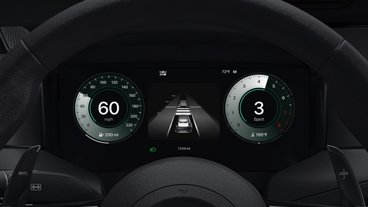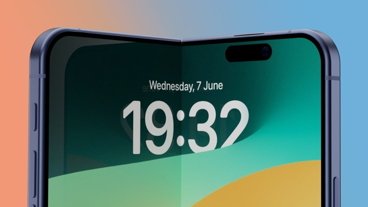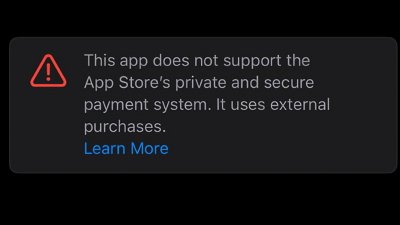Synology is pushing for consumers to buy its own brand of hard drives for its newest NAS appliances, with only certified drives getting the full suite of software support.
The cost of a network-attached storage (NAS) device could be split into two components, with the NAS itself as one part, while the drives that fill it make up the second. At higher capacities, the drives can be the more costly element to acquire, and often leads to users shopping around for deals on hard disks.
It appears that Synology is keen to earn more from users by getting them to purchase its own line of hard drives to go with the NAS.
Spotted by Hardwareluxx.de and confirmed by a press release on Synology's German-language website, the NAS maker is making changes to the way its drives software operates. For some models of NAS released in 2025, it will have a considerable preference to the use of Synology-branded or Synology-certified drives.
Synology says that its Plus series models shipping in 2025 will behave differently for third-party drives that haven't got the Synology certification. Officially sanctioned and deemed compatible drives will work with all of the features and support functions the NAS will offer, but others will not.
The limits of uncertified drives will include restrictions on pool creation, with them also missing out on volume-wide deduplication, lifespan analysis, and automatic hard drive firmware update features. The loss of these features for third-party drives could cause problems, such as users being unaware of issues until it's too late and data has already been lost.
More warnings, more profits
While these features won't be available to uncertified third-party drives, the drives will still work with a NAS as storage. Warnings will be displayed about support, which could scare users into buying Synology's drives, but they should otherwise work fine.
The company adds that there won't be any changes to Plus models released in 2024 or in earlier years, with the exception of XS Plus models and rack-based editions.
The reason for the changes is put forward by Synology as a result of the success of its High-Performance series of drives. It's claimed that this will grant "the highest levels of security and performance, while also offering significantly more efficient support."
An alternative and fairly obvious reason for doing so is to earn more revenue from consumers kitting out the NAS. Rather than getting cheaper drives from another supplier, the changes will probably influence users into buying Synology's drives, so that they don't miss out on safety features.
 Malcolm Owen
Malcolm Owen







-m.jpg)







 William Gallagher
William Gallagher
 Mike Wuerthele
Mike Wuerthele


 Andrew Orr
Andrew Orr
 Wesley Hilliard
Wesley Hilliard
 Marko Zivkovic
Marko Zivkovic







13 Comments
oh hell no. no lame. I like mine but will not be locked into their brand storage, no technical reason for this
Having worked as a Synology reseller, I can guess as to what the problem is:
Hard drives are no longer "general purpose" like they were in the old days. Mechanical design and firmware are now optimized for all kinds of use cases: NAS / SAN, NVR, desktop PC, workstation, various types of servers, etc. Don't get me started on SMR vs CMR. Way too many users buy a NAS and then throw in whatever drive is cheap, or whatever drive has the biggest capacity, without any understanding or consideration of fitness for purpose. And when the drive is slower than trash or fails early, who do people blame? Themselves? Ha ha ha ha ha, no.
It looks like you can use any drive that Synology has tested / certified, and their tested / certified list generally contains virtually all of the makes and models that make sense to use. My only gripe is that it's often a few months behind what's released on the market. I don't have much trouble predicting what will and won't wind up on there, but that may be a hassle for people who want something that just came out. If you check the specs very, very, very carefully it's not exactly rocket science to figure out, but you have to be precise about it. Unless you have a lot of technical knowledge about hard drives and are excellent with details, just stick to their list.
I wish Synology HDDs were more cost-competitive. The quality is solid, but the markup is a bit much in a market that's pretty tight. Their SSDs are better in this regards and I almost always use those.
Weren’t we always checking the list for compatibility though? I remember doing it before I bought my still in use DS916+. They’ve pushed their drives since they started making them and if they don’t get any cheaper, people are still going to use third party drives. Looking to hopefully upgrade soon, and cost is a huge factor when the drives are more than the unit.
I can understand why Synology did this. I have been burnt (pretty bad) by buying four high volume drives that were marketed by Western Digital as "NAS" drives, and that totally failed hard in my Synology. The compatibility requirements are really very fiddly and opaque for me as a very savvy prosumer. Not an expert, but definitely in the weeds in detail. The level of detail required to ensure that drives are compatible is crazy - many vendor sites for HDD don't have the level of precision necessary - don't show all of model specs or swap out as interchangeable minor differences without disclosing it. I lost hundreds on those unreliable drives.
Personally, have been bitten by Western Digital cutting corners, I view this as potentially similar to the "Apple tax" on memory but more understandable. People may kvetch about it, but it's hard for Synology to not lose their brand reputation if Western Digital can't be trusted.